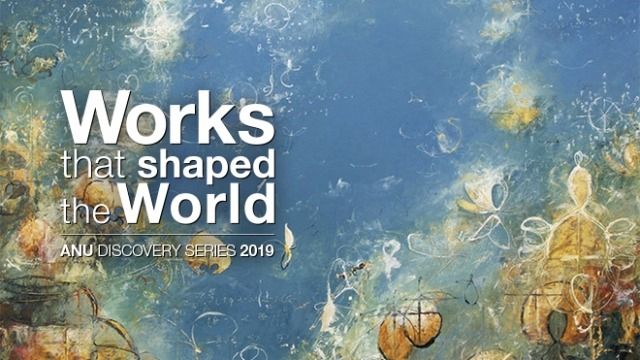Works That Shaped The World 2019: The (Lost) Works of Pythagoras

The ANU College of Arts and Social Sciences and Humanities Research Centre present Works That Shaped The World; a series of talks exploring humankind's great achievements and astonishing creations. Marking the 50th Anniversary of the Apollo 11 landing in 1969, the inaugural 2019 series explores the moon through topics ranging from Shakespeare and cinema, to environmental humanities and Pythagoras.
The moon has held a special place in cultures across the globe. An object of mystical wonder and focus of scientific inquiry, the moon is an enduring subject for artists, poets and writers. To land on the moon represented not only a remarkable technological achievement, but one that created in human history a shared moment of optimism. An achievement for human ambition and scientific discovery, born out of the geopolitical competition between nations.
In the second talk of our series, join Dr Sonia Pertsinidis as she looks at the lost works of Pythagoras.
Pythagoras is one of the most famous, controversial and mysterious philosophers of the ancient Greek world. Although none of his writings survive, the influence of his ideas upon Western thought has been immense. This is especially evident from Pythagorean contributions in the fields of music and harmony, mathematics and geometry, astronomy and astrology. This talk will explore the theory known as the ‘harmony of the spheres’: the idea that the moon, planets and heavenly bodies generate wondrous music as they travel through space. What was the basis for this idea? How did it influence writers and thinkers in subsequent centuries? And does it hold meaning for us today?
Dr Sonia Pertsinidis is a distinguished alumna of the ANU, a university medallist and the Convenor of the ancient Greek language program in the ANU Centre for Classical Studies. She specialises in the study of ancient Greek literature, particularly Greek drama, biographies and fable collections. She published her first book last year, a study of the life and writings of a little-known philosopher of the fourth century BC named Theophrastus, the immediate successor to Aristotle.
Image: (C) Michael Schultheis Art. All rights reserved. www.MichaelSchultheis.com and Instagram: @MichaelSchultheisArt
Michael Schultheis, an artist and Washingtson State University alumnus finds dynamic synergies between the languages of mathematics and arts. He paints math equations, the geometric forms that render in his mind, and imbues them with stories about human relationships. Michael has lectured at institutions such as the National Academy of Science and companies such as Amazon, and is also preparing for an upcoming exhibition with the National Museum of Mathematics in New York City.
Location
Kambri Culture Centre - Kambri Cinema
Speaker
- Dr Sonia Pertsinidis
Event series
Contact
- Humanities Research Centre+61 2 6125 4357